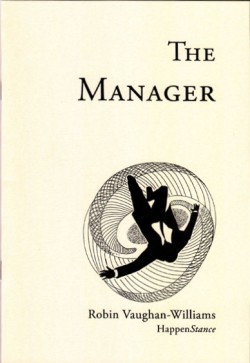The road is many things to many people. Mostly, I suspect, it’s a bit of a blank. A place that eats up substantial chunks of our lives, yet largely ignored as we focus on getting from A to B, the destination rather than the journey.
For me, the road has always been a hostile place. As a child with severe asthma and ecological concerns growing up in London, I was hyper-sensitive to traffic pollution. I felt I could smell the fumes the moment I stepped out of the house in the morning, even if other people didn’t seem to notice.
As a cyclist, I’m very aware of the perils of the road and the state of hyper-alertness that I enter when negotiating city traffic on my bicycle. The effort of continually responding to the flow of stimuli around me injects passages of adrenalin into my day when I seem to live rather than experience reality.
This reminds me of a passage from Walter Benjamin’s essay ‘On Some Motifs in Baudelaire’ in which he discusses the experience of traffic in a big city:
Moving through this traffic involves the individual in a series of shocks and collisions. At dangerous intersections, nervous impulses flow through him in rapid succession, like the energy from a battery. [Illuminations (Pimlico, 1999), p. 171.]
In the words of Baudelaire, one becomes ‘a kaleidoscope equipped with consciousness’. While the shock of the road was for Benjamin something modern, I also see it as an encounter with a very raw and primitive part of ourselves, as it is perhaps the only place in modern life where we regularly encounter a fight-or-flight mechanism.
I think this holds true for driving as well. We tend to think of drivers as encased inside a protective bubble, not always aware of the danger they are exposed to or pose to others. But when I started driving, I found that I often experienced the same state of hyper-alertness I was used to on the bicycle, sometimes just for moments of emergency, other times for prolonged periods, as when driving at night down unfamiliar country lanes or on a dual carriageway in a foreign country. I also noticed periods of abstraction, especially at night, when you can lose your usual sense of spatial relations as lights and other road objects start floating about in the rearview mirror.
These were the things that attracted me to writing about the road—alienation, danger, and abstraction—but I wanted to see how other poets wrote about it as well, which is how the Poems from the Road podcast was born.
In it you’ll hear poems from twenty-six poets journeying up and down the country. Yes, there’s death, there’s roadkill…Michael Greavy’s sheep that ‘splits like dropped shopping’, James Caruth’s ‘battered blue Ford’ that strains like ‘an old man fighting for breath’. But there’s also the road as a place of intimacy, memory, and homecoming, as in Matthew Stewart’s ‘Dad on the M25 after Midnight’ and Julie Burke’s ‘Angel of the Road’. There’s optimism and satire in Andrew Freeman’s story of a community takeover and Mark Gwynne Jones’s imagining of the Sherman tank as the next SUV. We see how the road both divides and connects us in Luke Wright’s ‘A12’—‘England’s crude appendix scar’, and the road as a place of dreams that sometimes takes us outside of ourselves. ‘I’m from the fog’, says River Wolton, to which the 1970s Polish pop musician Tadeusz Wozniak replies (in my fantasy podcast world where poets and scraps of road become detached from their historical locations), ‘One day near dawn cars fell from the sky’.
Home Cooking: Poems from the Road is a podcast produced by Robin Vaughan-Williams and commissioned by Apples and Snakes. It will be broadcast 5–6pm on Hive Radio every Thursday in December 2014, and will subsequently be available to listen to on SoundCloud. For more about the project, visit the Poems from the Road webpage.
Tags: Baudelaire, PoemsFromTheRoad, poetry, WalterBenjamin
